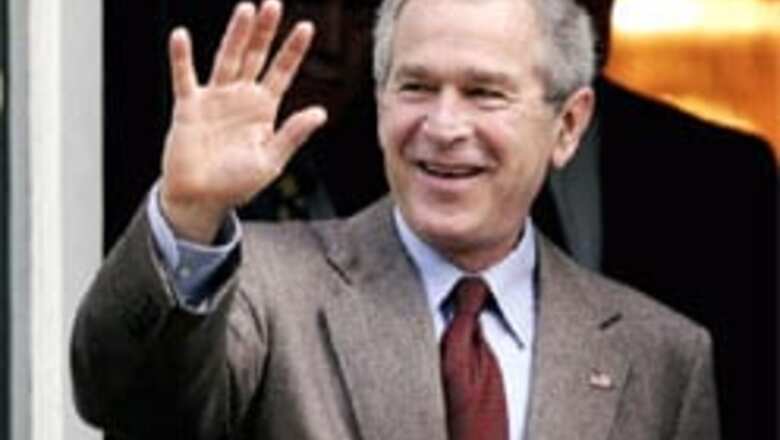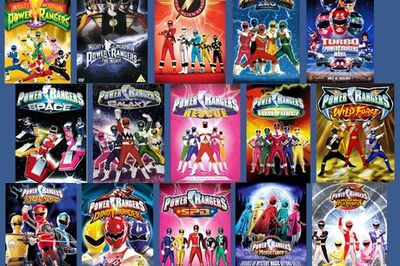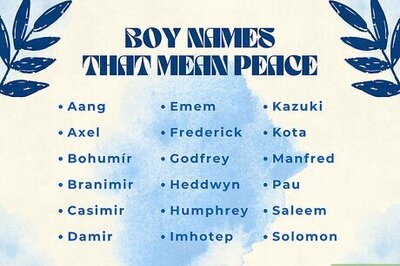
views
The following is a summary of this week's Time magazine cover story.
"Stay the course" is a time-honored rallying cry in politics. But it has always been more a slogan than a strategy, meant to show the steadfastness of the person who shouts it rather than convey any idea of what he actually intends to do. More telling is when staying the course turns into "constantly changing tactics to meet the situation on the ground."
That is how President Bush is now describing the battle plan in Iraq. It also pretty neatly sums up what his presidency has come to as he reaches the eve of a midterm congressional election that has turned into a referendum on Bush himself, and on a policy in Iraq that has left him more isolated than at any point in his presidency.
The last time control of Congress was up for grabs in a midterm election, it seemed Republican candidates across the country couldn't see enough of - or be seen enough with - George W. Bush. In the closing five days of 2002, Bush swooped through 17 cities, playing to tens of thousands of voters who packed tarmacs and arenas from Aberdeen, South Dakota, to Blountville, Tennessee.
This midterm election is also turning out to be all about Bush, but it's a much lonelier experience for him. He still fills smaller rooms, especially the kind where people are willing to write five-figure checks for the privilege of lunch with a Republican resident. And he's welcomed warmly in places where having local reporters point out Bush's difficulties provides a diversion from the candidate's own.
But when Air Force One touches down in tightly contested congressional districts these days, it often turns out that the GOP candidate there has discovered a previous commitment, the political version of an appointment to have your tires rotated. Yes, it's true that Florida Congressman Clay Shaw has been running radio ads to boast of his record working closely with a President, but the one he's talking about is Bill Clinton.
The campaign trail is not the only place where Bush is watching his friends scatter. Only 38 percent of Americans say they still believe his invasion of Iraq was a good idea; 61 percent say they don't think he has a clear plan for handling the war.
But Bush has lived by the political philosophy that when the crowd is against you, you just strut more boldly across the stage. That's why he held a news conference a few days ago to hug his war policy even tighter.
PAGE_BREAK
It is there that he argued staying the course means "constantly changing tactics to meet the situation on the ground," and that benchmarks (good) aren't the same as timetables (bad).
But it was as if no one was listening. Iraqi Prime Minister Nuri al-Maliki declared that he wouldn't abide by either one if it was imposed by Washington, and Bush's top general in Iraq, George W Casey, broke ranks to suggest he was thinking about asking for more troops.
That was just about the last thing any Republican wanted to hear with less than two weeks to go before an election. Within 24 hours, therefore, Casey was pulled back on message with a statement in which his office said he had given the "wrong impression."
Meanwhile, even as Bush was praising Defense Secretary Donald Rumsfeld as "a smart, tough, capable administrator," endangered Republicans like Kentucky Representative Anne Northup and Ohio Senator Mike DeWine have been joining the increasingly loud chorus of calls for the secretary's ouster.
And pressure for change is not coming only from the desperate and the wobbly. Texas Senator Kay Bailey Hutchison - a Bush loyalist well ahead in her bid for re-election - is expressing regret for her vote to authorize the invasion and is advocating partitioning Iraq along ethnic lines. "We have to step back and stop trying to put our American ideas onto this problem," she told the Houston Chronicle.
Iraq is what has set the President up for a possible rebuke by voters. And if Bush were a different kind of politician - if he loved political jawboning like a Lyndon Johnson or could show political elasticity like Bill Clinton - this moment might be less significant.
But Bush has perfected the art of governing from inside his razor-thin majority, and is proud above all of his ideological steadfastness. That's why the midterms could do more than change the balance of power in Washington, if current polls are right and one or both houses shift to Democratic hands.




















Comments
0 comment